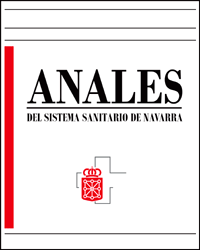The Infant Oral Care Program (PADI) of Navarra and the Basque Country: achievements and new goals
Keywords:
Salud pública dental. Navarra. País Vasco Política de salud. Planes de salud. Desigualdades.Abstract
This paper briefly analyses the results of the Infant Dental Care Program (PADI) of the Basque Country (1990) and Navarra (1991), aimed at children aged from 6 and 15 years. At the age 12, the lack of caries rose from 31% in 1988 to 57% in 1998 in the Basque Country, while it was 58% in Navarra (1997); the number of caries fell in Navarra by some 64% and by some 54% in the Basque Country, and the index of restoration was 81% in Navarra and 73% in the Basque Country (it was 17% in 1988). Emphasis is placed on the importance of a good evaluation of these programs and the opportunities that are opened up by the comparative analysis between Spanish autonomous communities for analysing the contribution of factors that are different, and for evaluating the impact of the programs on social inequalities in health. The results of the PADI exceed the initial aims of the Health Plans of Navarra (1991) and of the Basque Country (1990), and endorse the adoption of these programs by the Spanish autonomous communities. The development of these programs raises new objectives in dental health policy in Navarra and the Basque Country and, above all, makes it necessary to reflect on the need for Spain to include public dental health in its health policy and for the National Health System as a whole to include dental services within its services.Downloads
Downloads
Published
How to Cite
Issue
Section
License
La revista Anales del Sistema Sanitario de Navarra es publicada por el Departamento de Salud del Gobierno de Navarra (España), quien conserva los derechos patrimoniales (copyright ) sobre el artículo publicado y favorece y permite la difusión del mismo bajo licencia Creative Commons Reconocimiento-CompartirIgual 4.0 Internacional (CC BY-SA 4.0). Esta licencia permite copiar, usar, difundir, transmitir y exponer públicamente el artículo, siempre que siempre que se cite la autoría y la publicación inicial en Anales del Sistema Sanitario de Navarra, y se distinga la existencia de esta licencia de uso.








